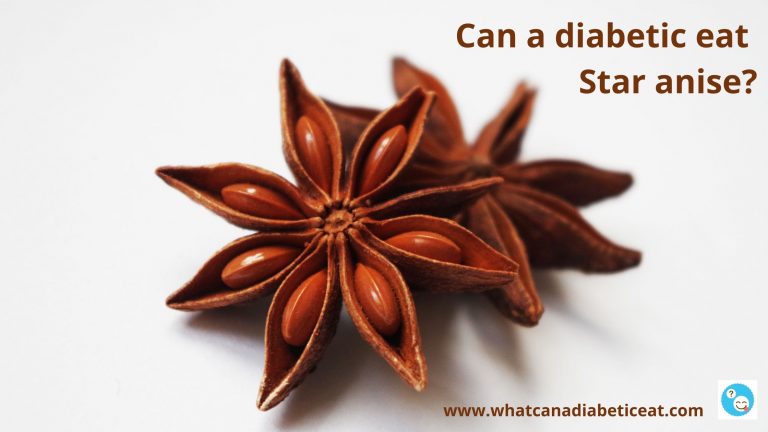Can a diabetic eat Star anise?
Yes, a diabetic can eat star anise. Star anise is a popular spice that adds great flavours to sweet and savoury dishes. At the same time, star anise also offers many health benefits too. Star anise has a mixed flavour including sweet, peppery and liquorice. Each star anise pod looks like a eight pointed star with seeds in each. Both pods and seeds are edible.
You may add star anise to your food either whole or powdered. You can powder whole star anise using a grinder or pestle and mortar. Many Asian cuisines have star anise tea as a popular drink.
Does Star anise raise blood sugar levels?
Many studies have found that star anise can actually help regulate blood sugar levels when you consume it as part of a balanced diet. Anethole, an ingredient in star anise can alter several key enzymes and thus regulate blood sugar levels.
What are the benefits of eating Star anise?
Star anise enhances flavour of your food and offers health benefits too. Star anise is antioxidant, antimicrobial, antifungal, anthelmintic, insecticidal, secretolytic, antinociceptive, anti-inflammatory, gastroprotective, sedative properties, expectorant and spasmolytic and estrogenic. Some health benefits of eating star anise include the below.
- Many studies have proved that star anise contains anethole, that can help regulate blood sugar levels.
- Star anise contains vitamin A, vitamin C and many antioxidants that can help fight free radicals. As a result, one can reduce the risk of early ageing and diabetes.
- Star anise oil contains terpinol, anethole and thymol. These ingredients make star anise oil great for treating sore throat, cough, cold and flu etc.
- Star anise can help you get a good night sleep owing to its sedating ability.
- Oil made from star anise helps reduce lower back pain and symptoms of rheumatism.
- Including star anise regularly in your diet can help with weight loss.
What are the side effects of Star anise?
In general, people do not suffer any serious side effects after consuming star anise or star anise products. However, Japanese star anise is an exception as it contains potent neurotoxins. Studies have shown that Japanese star anise can cause serious side effects such as hallucinations, nausea and seizures.





